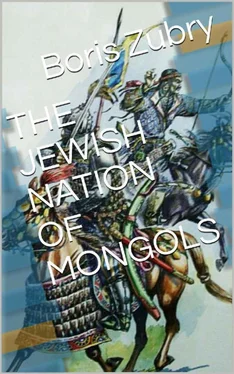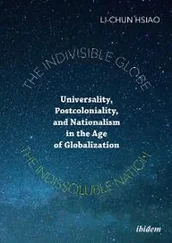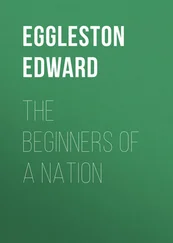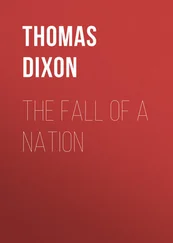Yossel, or otherwise known as Yossele, was an even smaller man than his son was, but a spirit. He had a little shop of the religious artifacts located on the outskirts of Williamsburg. It was a small affair but just enough to feed the family. The rent was cheaper there, and people needed the religious artifacts no matter what. Some people say location, location, and location, but for the religious artifacts that were not true. You must have the right stuff. That’s it. Try to think like the person buying it, and you’ll know what you want to buy. That was very important for success. And, Yossele knew the religious artifacts and kept the prices fair. So, the shop was there and not on the main street. There were a few shops on the main street already anyway. Why would you need more? He was not affluent or well-educated, but he was a hardworking man and very honest. Honesty was the chief possession that the family had, and they were so proud of that.
Yossele was a mentsh (a special man or person who was respected). People knew that and listened to what he had to say often, just out of respect. He came from a family of thirteen children, and his father was only a tailor. Most of the tailors could make children better and faster than to tailor. But, what else would you do on a cold night if not tailor? Work was scarce at times, and coal was expensive all the time. Being a good tailor, back then, did not equate to being rich or even having money. Every tailor was good back then; how could you survive otherwise. You could stitch and stitch well, and so what. You could not produce more customers and could not sew more money. Aaron’s grandfather, Menachem, had many interests, and even more children. More people owed him money than paid, but he was well respected and never ran out of favors. Even in difficult times, the butcher, the grosser, and the baker would not ask him for money. They would wait for Menachem to bring it in when he had something to bring in. In the end, he always paid when he could.
After all, Menachem always waited for them, and none of them wanted to discuss money when other pressing issues were at hand. What was more important? Williamsburg was getting bigger, and stronger with every passing year. More people were moving in by the minute. A new high-rise apartment building (six stories) was just erected across the street from the butcher’s shop. That was something to talk about. That was huge. New people from Russia just moved in. Were they relatives? Where exactly are they from? We need to go and talk to them. They may need help. Brooklyn was becoming gigantic with all kinds of people moving in and out. It was becoming a metropolis of the international proportions. Rebbitzen (Rabbi’s wife) was expecting a new baby, and Menachem just had a new baby. And, the butcher had six, but he wanted more. And, the baker’s wife could not give birth at all. That was a tragedy, and they discussed it. That was something to discuss, to worry about. Money…not so much.
The shochet (the kosher butcher) thought that she, the baker’s wife, had too narrow hips to give the birth, but a druker (a printer) from the shop on the corner said that it could be him, the baker. But, the baker did not want to hear any of that and was planning to adopt an orphan from Eretz Israel . Was it possible? Some said yes, but some said no. Did the Rabbi know? What did he say? What do they say in Israel? Israel was not a big country, but they had way too many orphans. The world acted as it always was the hunting season on Jews. Still, some children survived and needed help. That was something to talk about. Why talk about the money when no one had it or really cared about? Money was not everything, but being a good Jew and the health of the community was. Help others, and they will help you. Was it done in any other community? They did not know, but it was not that important anyway.
Lately, many Hasidic youngsters had moved from their own shtetl — Williamsburg of New York, to the outside world. Was it wise? Some of them, Got zol ophiten! (God forbids!), took the black kaftans and the hats off, and got the haircuts where payos were not included. They looked like any Gentile on the street and not really chosen. What was wrong with them? Was the world going crazy? What was next — no kosher ? Driving a car on Sabbath? TV? Ballet? Opera? Short skirts? Dancing with women? Praying in the same hall, together, men and women?
We had these privileges from God since forever, and now what. To uncover your head… No beard… No payos … No prescribed clothes… What a shame! What a failure. Naked among the wolves. Some, many, kept wearing the yarmulke (the skull-cap), and they went to the synagogue on the Sabbath and the high holidays, and that was that. Did they follow all the regulations? Kosher? Who can say? Who would really know? Did they keep kosher, really keep it to the letter of the law? What if they did not? What’s then? The Hasidim were getting born, but the total numbers of the righteous were getting fewer and fewer, and that was painful. This was the genuine article. This was the major blow. Has God intended that? Why would God do that? Was it a rejection of the chosen? Why would God reject so many people he had chosen before? Why? That was something to talk about, and not the money. Money! What is there to talk about? One either had it or not, and nothing could be done about.
Menachem was afraid that the shift up in the general education created the shift down in the religious beliefs. Many Jews were turning away from God. Got tsu danken (Thank God), none of them dropped the traditions. Something was better than nothing. Traditions tended to stay longer, often forever. Matzo was on the tables during the Passover and not the bread. That was good, that was something already. Nevertheless, the foundation of Jewish life, as he knew it, was shaking, and Menachem was scared. Why was it happening? Who needed that? It was again the revolution and in its ugliest form. There was so much danger there. He resisted accepting life without Hasidic beliefs and Hasidic customs. He wanted everything to remain as it was for the last two hundred years. It was fine. Why fix if it was not broken? Mitten derinnen? (All over sudden?) Meshuga! So, high education was not in the book for Menachem and his children.
Study the Torah, and that is more than enough for a good Jew to be a good Jew. Torah has everything you may need, and it would make you good. That was the rule of law, and they followed it. So, the girls were married off to good and honest men; two sons had joined the father in the tailor’s extravaganza. One son became the baker’s apprentice, and later, a partner and a little Yossele had a small Jewish artifacts shop. Naturally, Yossel, being in a new business, needed more help than the others, and they all helped. The family had to stay together and support each other. Who else was there to think of you? So, drop the squabbles and help each other as much as you can if not more. Thus, they all came whether he needed it or not. The whole arrangement looked to everyone involved entirely fair. Each one was married, had children, and was equally poor, and often, happy.
“So, your son is a doctor? A gynecologist? Just for the Jews? Oh, for anyone. Do they need it too? I see. Do you think they look different down there? I mean the Goyem. I suppose not. So, he makes a good living, your son? Of course, he does. Why do I ask? He has to. Otherwise, why would he spend all his time looking in there? All the way down there. Under the skirt… You saw it once you saw it a thousand times. Am I right? Maybe he likes it and gets good money at the same time. That should be it. Could that create a problem at home? I mean, you see so many of them; do you want to see one more. Dentist investigates one end of your body; proctologist — at the opposite end of the same body, and your son gets to enjoy himself right in the middle of it. Smart boy. Very smart boy. You should be so proud of him. Are you? Can all three doctors check one patient at the same time? It could save so much time, but they could charge the same. That could be interesting. Progress. New development in medicine. I would like to see that. Would you? Does your son need an accountant? Of course, he does. Here is my son’s, Aaron, card. Call him and use my name. I am his father and a good reference. Tell him that you are a good friend. It does not matter if we just met. We could’ve known each other for ages. We could’ve been related for all I know. He’ll take care of you. Gai gezunterhait! (Go in good health!). Talk to your son. Lucky boy. A doctor. A Gynecologist of them all. He looks under the skirt all day long. Interesting profession.” Yossel was so happy to spread the word of his son. That was such a joy. His son, Aaron, was the first university-educated Cohen in the family, and that was not something to sneeze at. He got the education and stayed with the community. After all, one does not move out and change a life just to get an education and a good profession. One could remain a Jew and be anyone. Anyone. That’s a fact. A CPA could wear the yarmulke and the kaftan of the faithful, and so is a doctor or a scientist. Why is it not? Who said that one cancels out the other? It is all in your mind and in the heart. Follow the ancient customs and be righteous. Be respectful and respected. How difficult is that? Follow your ancestors. They were a great lot. Oh, they suffered. They suffered so much. And we suffer. We suffer so much. Be a good Jew, and God will never leave you. God be always with you. Aaron was a righteous Jew, and Yossele was so proud of him.
Читать дальше











